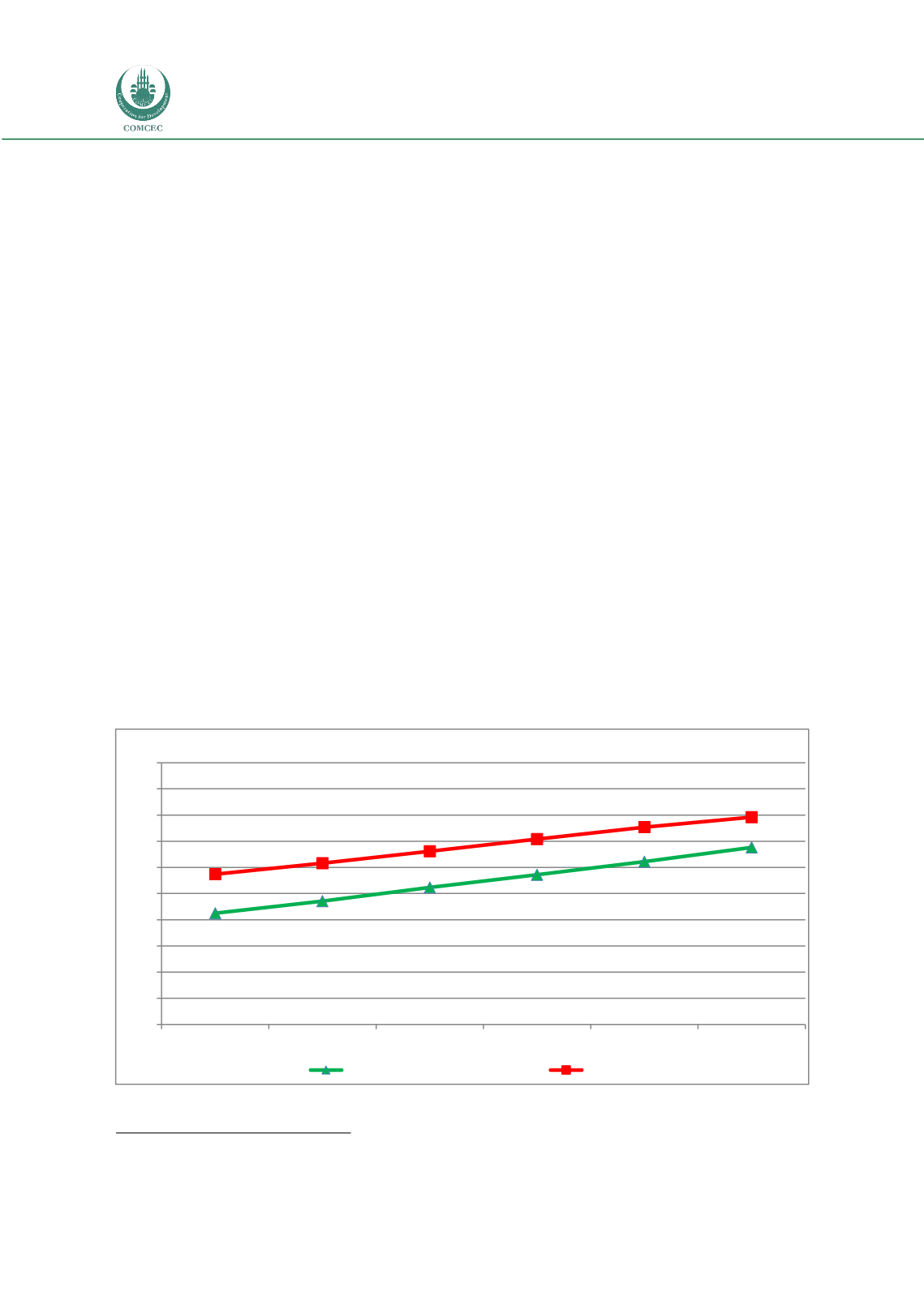

COMCEC Agriculture Outlook 2016
40
considered to be the instability in the Middle East and North Africa, the climate change and the
global food crisis occurred in 2007-2008 and during 2011. Therefore, ensuring the stability of
food price, which plays an important role to enhance the food access, maintains its importance
in the OIC Member Countries.
3.3.
Utilization
According to FAO definition, utilization refers to the act of food usage and consumption
through adequate diet, clean water, sanitation and health care to reach a state of nutritional
well-being where all physiological needs of individuals are met.
24
Therefore, the significance of
non-food inputs is mainly emphasized with respect to utilization aspects of food security.
Hence, general hygiene and sanitation, water quality, health care practices and food safety and
quality are considered as fundamental determinants of food utilization.
In the FAO study of food security indicators, the utilization dimension of food security is
measured by various indicators such as access to improved water sources, access to improved
sanitation facilities, percentage of children under 5 years of age who are stunted, percentage of
children under 5 years of age who are underweight, percentage of adults who are underweight,
prevalence of anaemia among pregnant women, prevalence of anaemia among children under
5 years of age, prevalence of vitamin A deficiency in the population, prevalence of iodine
deficiency. For the scope of this study, access to improved water sources which provides
worthwhile information on people’s health status is chosen as the only indicator to assess the
utilization aspects of food security in the OIC Member Countries.
Figure 35. Access to Improved Water Sources in the OIC and World
Source: Calculated by using FAOSTAT
24
FAO, 2006
71
74
76
79
81
84
79
81
83
85
88
90
50
55
60
65
70
75
80
85
90
95
100
1990
1995
2000
2005
2010
2014
Percent
OIC
World
















